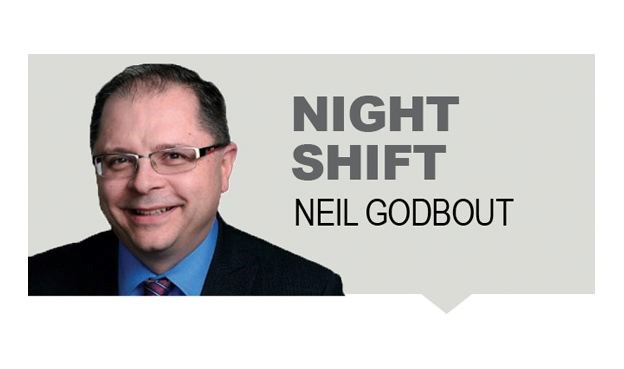The best of Prince George was on display in the overflowing city council chambers Monday night as speaker after speaker after speaker courageously went before mayor and council to declare how much they care about the health and safety of all local residents.
It was notable for the lack of finger pointing. There was no yelling from downtown business owner/operators and people who work in the area, demanding city council clean up the mess left by "those" people. There were no tirades from social advocates that the cops, the capitalists and the privileged are why we have suffering on our streets in the first place.
Perhaps the finger pointers all stayed home, ate roast pork and amused themselves in the sanctity of their social media echo chambers.
And we're all better for it, despite the best effort of the bureaucrats to suck the energy and good will out of the room with a nearly half-hour presentation to kick off the evening.
Senior managers from the city, the RCMP and Northern Health all took turns patting themselves on the backs for their hard work so far, for throwing more money, sending out more patrols, holding more meetings, forming more partnerships and launching more initiatives at the problems.
Other than a grudging acknowledgment that things have gotten worse in recent years, not one of them admitted their efforts haven't been enough.
Thankfully, the leadership came from local residents, who stepped forward with compassion, wisdom and understanding.
Jesse Cody started off by acknowledging the meeting was being held on the traditional territory of the Lheidli T'enneh First Nation, gently scolding mayor and council for not doing so at the beginning of the night. To expand on Cody's point, reconciliation is an ongoing process that doesn't end with the renaming of a park or being the first Canada Games city to have a host First Nation.
Cody then praised council for the plan to develop the NR Motors property on First Avenue into social housing but noted that's a long-term solution when immediate action is also needed. He made suggestions - repurposing currently vacant buildings into emergency shelters, offering safe spaces during the day instead of just at night. He didn't just ask government to step up. He encouraged downtown businesses to increase security and do more to keep their properties safe and clean.
The ideas kept flowing.
Daniel Gallant pointed to a University of Alberta program that connects social work students with street youth.
Nancy Long noted how successful the Bear Clan Patrol has been in Winnipeg in making city streets safer for everyone, from workers and business owners to disenfranchised street residents.
Major Neil Wilkinson of the Salvation Army told a story about how the 18th Avenue support centre was constantly being broken into since it opened in 2015 but compassion and engagement with clients has helped reduce vandalism and theft.
Dawn Matte, the manager of Ave Maria on 20th Avenue, told a similar tale of a problem panhandler who was offered food and cash in exchange for keeping the outside storefront clean and safe.
She started her presentation by admonishing local government for celebrating all of its partnerships with other groups and agencies without mentioning that downtown business owners and operators are a hugely valuable partner to address these issues.
She wrapped up her talk by encouraging city council to "put your foot down and hold your partners accountable."
Multiple speakers stressed two important points. First, street people should not be addressed as "them" and "they" because it separates them from local residents. "The royal we," as one person put it, needs to separate the criminal element from people on the street dealing with significant hardships and just trying to survive from day to day.
Connie Abe , the executive director of the Association Advocating for Women and Children (AWAC), reminded everyone that "many people on the street don't want to be housed. If they don't want to be housed, what do we do? I don't know what the answers are. I wish I did."
Bernie Schneider, the first speaker of the night, spoke eloquently of the challenges of owning and operating a business downtown without demonizing the vulnerable street population. He called for local government to form a committee to continue the discussion and work towards solutions that will improve the city to benefit everyone. Nearly five hours later, his wish was granted as mayor and council voted to form a task force to tackle the social issues the city is facing.
It was a good first start but we must be realistic. A continuous effort over the long haul is needed to improve things. The problems will never completely go away and they certainly won't disappear after a positive meeting or some policy changes.
Our very best is needed to ease the suffering of the city's marginalized and vulnerable populations on our streets. When the community comes together to help the less fortunate, everyone benefits.



